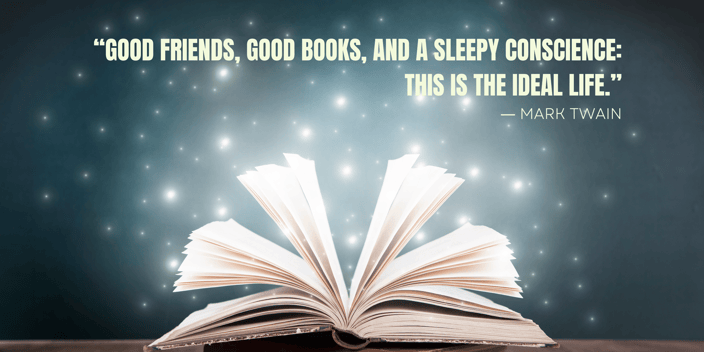
Book translation is a unique field that requires both deep knowledge of the languages and the culture involved. It is not even translation but rather “rewriting” in another language or “re-authoring”, a process which is now referred to by many as transcreation. A book translator does their best to deliver the same idea as the idea of the original text, conveys the style and the energy of the original, and even may create new words in order to show a reader the fantastic world that the author created in their masterpiece.
Translating a book requires time for inspiration and investigation, as it is a special type of translation process, different from processes one may use for non-literary translation. It is a special zone that a translator needs to get into. Usually with not as much time pressure as with non-literary translation (let’s call it commercial translation), and a book translator becomes an ambassador of the author, of their story and philosophy.

Pros and cons of working in literary translation
Here at ProZ.com more than 30,000 language professionals report literary translation as one of their fields of expertise. The top 5 languages that are being translated from or into are English, German, Italian, French and Spanish. Literary and book translation opens tons of opportunities to language professionals with texts for translation of different genres and for different tastes. It can be poetry and plays, literary books, novels, and short stories, as well as comic strips, children’s books, biographies, eBooks and audiobooks, and many more.
As they say, the sky is the limit and a language professional can choose their own way of entering into or developing in the literary translation industry. Book translation may become a hobby and volunteer work, it can be a good resource of inspiration and a possibility to switch from “dull” tech instruction translation to something more alive or magical. A translator may test the waters of voiceover with the translated book or may even become a self-publisher! There are different ways to apply one’s talents.
Even though every linguist finds their own reasons for satisfaction from book translation, there are some advantages and disadvantages that most translators name when talking about this translation domain.
Advantages:
- Daily work with top-notch, well-written literary texts that a translator may read for pleasure. A book translator is likely intrigued by the plot themself and enjoys the translation process. While “regular” commercial translation may involve work that does not require that much thoughtfulness or intellectual and emotional work in comparison.
- Book translation gives a good source of additional revenue. Book translation presents a huge variety of genres such as poetry, fiction, nonfiction, drama, and prose. It can be a book for children, a travel guide, a comic book, and even an audiobook that one will translate and then do the voiceover for! Globalization processes open new markets so the need for books to be translated into different languages is constantly growing.
- Book translation gives pride and joy to the translator as they are bringing the work of the author to a new audience, and their name is specified on the book as a translator.
There are a few disadvantages that a translator may face though:
- The process of book translation tends to be much longer than other types of translation. Of course, this can be considered an advantage for some translators as well.
- The cultural and demographic mismatch. In this case, a translator will need to have good negotiating skills working with editors, or a publishing house.
- Book translation tends to be priced lower than “regular” commercial translation.

A Book Translator’s skillset
There is a certain set of skills that a book translator needs to have. It is obvious that a good literary translator has advanced language knowledge, deep cultural understanding and a feeling of context, excellent writing skills, solid research skills, and translation experience that should be enough to make the right decisions. To achieve success in this type of translation, translators keep on immersing themselves in the culture as language is constantly changing as well as the cultural realities. Books for children and youth may reflect the most current trends that appear in the country of the source text and may not be available or known in the country where the target language is spoken. How can one understand and explain objects that do not exist in your culture? What about idioms? A well-read translator with good awareness of specific traditions will feel the tone of the context and the right translation will bridge the gap between the cultures.
How many liberties can be taken when translating? Does a translator have to make the text more contemporary for his readers if she translates old texts? There are so many questions that a book translator considers on a daily basis, keeping in mind the end client—a reader.
What’s next?
As many book translators say, they accepted their very first book for translation almost accidentally. There are plenty of ways of starting one’s book translation career. First of all, it is highly recommended to join dedicated directories, international and regional associations of literary translation and forums to stay up to speed on industry trends. Secondly, one cannot overestimate the virtues of word of mouth and social networks. Be present on the Internet with your comments about books that you have read in the original, about your excitement about a certain topic or an author, and about your interest in this field in general. You may wish to sign up for social media groups of the publishing houses that published the books you have recently read and remained excited about them. Don’t forget to use hashtags!
If you don’t have much experience yet but are building towards this kind of work, you may consider joining the mentoring program or the Pro Bono program to gain experience and start building a portfolio. Consider joining ProZ.com translation contests that offer a fun way to take a break from your normal routine while testing and honing your literary translation skills with fellow translators.



